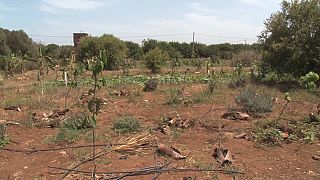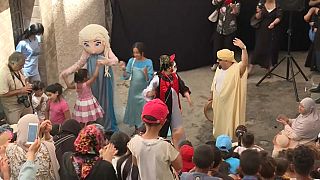CapeVerde
A Guinean association based in the neighbourhood of Alto da Glória on the outskirts of the capital of Cabo Verde, Praia, is working hard to keep the culture and traditions of their home country alive.
Older members of the cultural association, Cabaz di Terra, are teaching their children about the song, dance, and poetry of Guinea-Bissau.
They believe it is important that the young people born in Cape Verde understand the culture of the country their families come from.
‘They’ve never been to Guinea-Bissau and don't know what it’s like. Through the association they’ve heard about our home country, they see how they dance, hear how they sing, they keep that culture alive. We don't want to lose sight of that culture,’ says the association’s secretary, Carlos Djasi.
Guineans are the largest community of foreigners living in Cape Verde, and like most of his fellow countrymen, Diasi’s children have never been to Guinea-Bissau.
Keeping the traditions alive
Twelve-year-old Nayara Mané was born in Cape Verde and has never known her parents' land, but she can sing and dance as if she had always lived there, thanks to the commitment of the association’s elders.
‘Here I learn our history,’ she says after reciting the poem 'Cabaz di Terra', although she confesses that she prefers singing and dancing.
Veracia Nhanco, 13, came to Praia with her parents just four years ago. She practiced traditional dance in Bissau and has continued with it through the association.
Formed in 2013, the association in the informal neighbourhood gives Guineans the opportunity to 'return' to their roots every week, even if for a few hours, and in the process, pass on their culture and traditions to the younger generation.













Go to video
Spain to offer residency and work permits to undocumented migrants
01:10
Spain’s left-wing government stands out on migration policy in the EU
01:07
Yale University to offer course on Beyoncé next year
02:14
Gospel music star Tamela Mann speaks about her latest album, 'Live, Breathe, Fight'
00:53
Pope Francis calls for empathy and justice in welcoming Migrants
02:17
Akazehe: a unique Burundi greeting risks disappearing